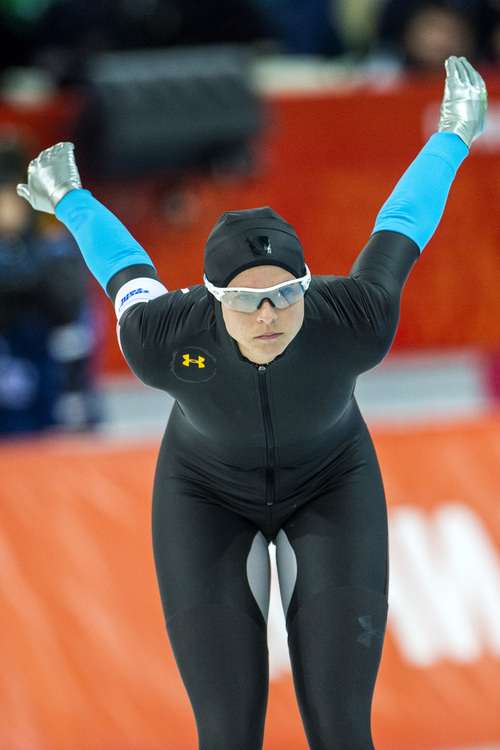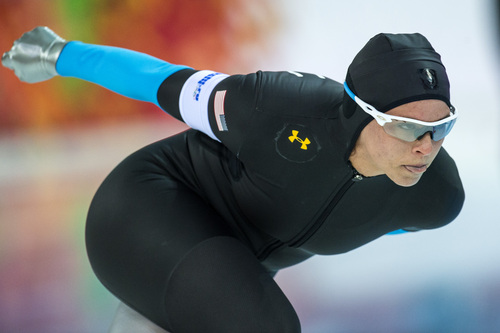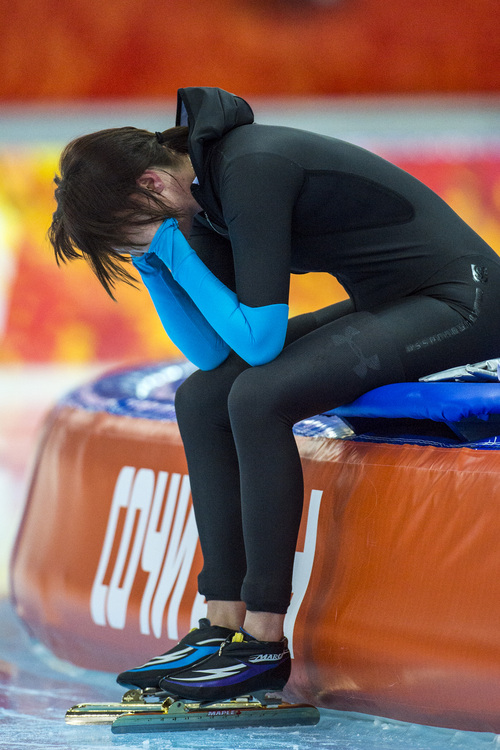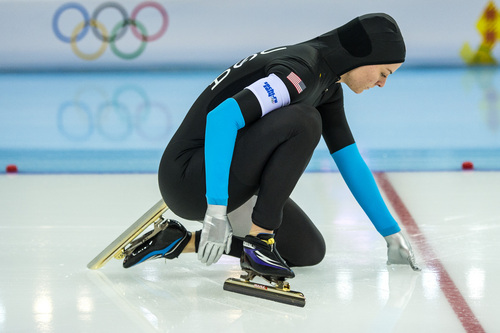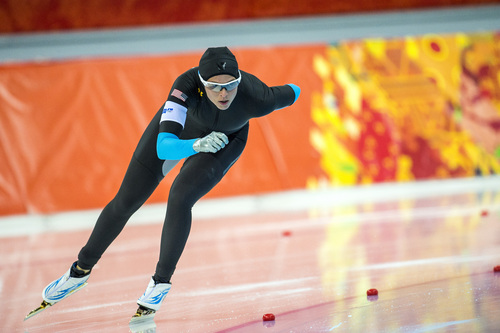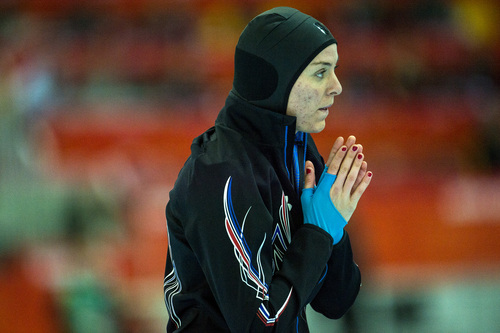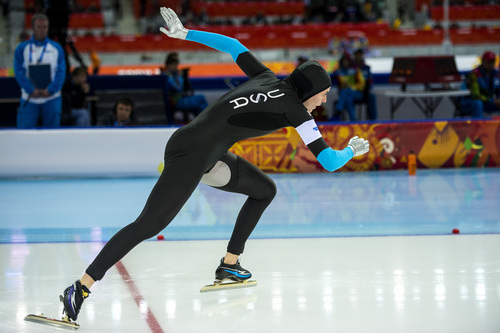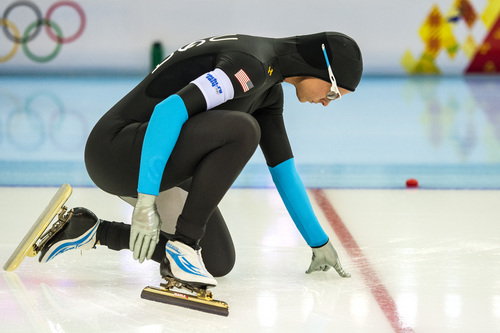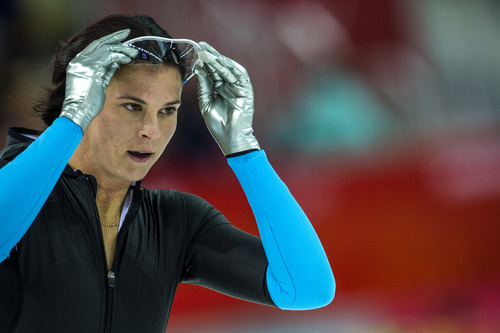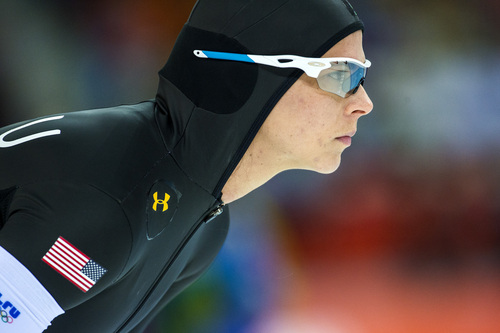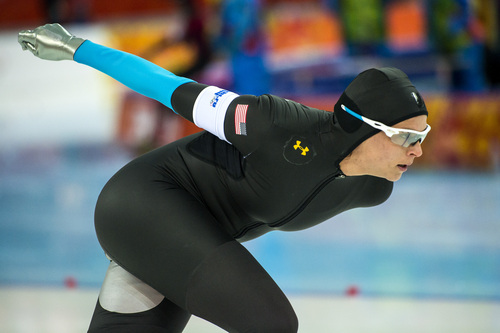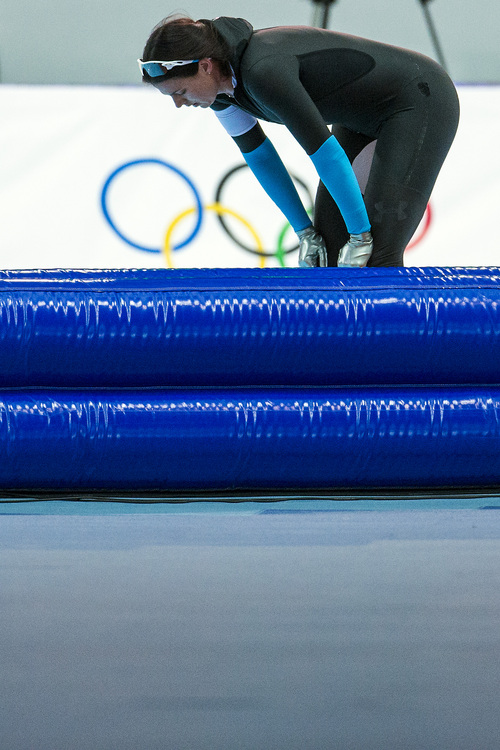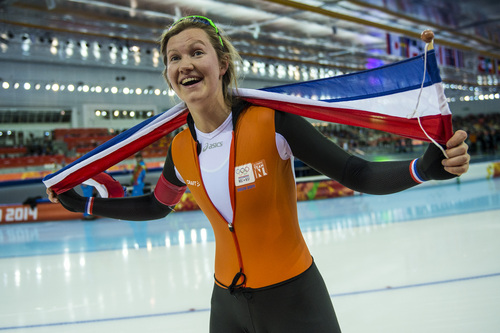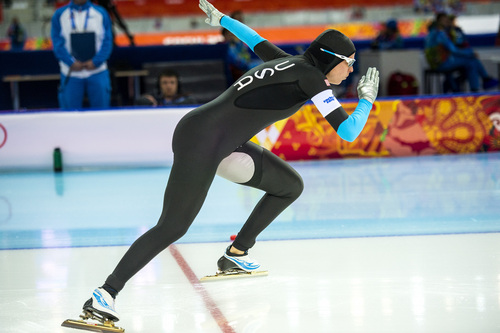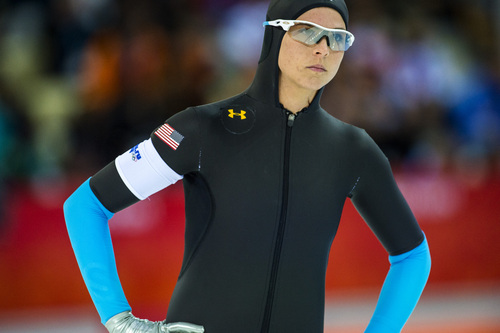This is an archived article that was published on sltrib.com in 2014, and information in the article may be outdated. It is provided only for personal research purposes and may not be reprinted.
Sochi, Russia • They weren't distracted. They weren't angry.
But no matter what Heather Richardson and Brittany Bowe and the rest of the American speedskaters have or haven't done at the Sochi Olympics, nothing has changed. The once-powerful program still has not won a single medal, and the skaters are poised to head home empty-handed for the first time since 1984 after Richardson and Bowe failed to medal in their last best chance on Sunday night.
"It's really surprising," Richardson said. "We went out there and give it all that we could, and that's all we can ask for."
The women were expected to contend for gold in at least two individual events, based on stellar results in the World Cup season leading up to the Olympics.
But like their teammates, they never finished higher than seventh amid an almost comical controversy over their new high-tech skinsuits, and watched skaters from the Netherlands turn the ice at Adler Arena into their own personal playground.
The Dutch have won a record 16 of 24 speedskating medals awarded so far and claimed the top four places in the women's 1,500 meters Sunday — including an astonishing Olympic record by short-track specialist Jorien ter Mors, who already had two top-six finishes in that sport here.
Skating on supposedly slow ice at sea level after just a few long-track training sessions, ter Mors clocked 1 minute, 53.51 seconds, obliterating by 0.51 seconds the previous record set by Germany's Anni Friesinger at the 2002 Salt Lake Games, on the purported "Fastest Ice on Earth" at the Utah Olympic Oval in Kearns where U.S. Speedskating is based.
"That was impressive," Bowe said.
Once again, though, the Americans were not.
Richardson finished seventh and Bowe 14th, more than four seconds behind ter Mors. Both said they had not been distracted by U.S. Speedskating's mid-competition decision to ditch their new skinsuits for their old ones — the switch made no difference in the results — and that all of the skaters at least are pleased with their effort.
"The team has done a great job sticking together," Bowe said. "There could be a million different factors into the performance. Obviously, it's unfortunate. No one wants to be in the position that we're in, but we're here and we're doing what we can with it. And that is going out there and trying 100 percent every time we get on the ice."
Four more races remain — the 5,000 for women, the 10,000 for men and the team pursuit for both genders — but the Americans are not expected to medal in any of them.
The Dutch, on the other hand, are expected to continue piling up the hardware.
No nation has ever won so many medals in a single sport, and its 1-2-3-4 performance was the first of its kind in any sport since East Germany in men's luge in 1972.
"They're doing something right, and good for them," Bowe said. "They've had an awesome competition and the results have spoken, that's for sure."
Richardson, who's engaged to Dutch skater Jorrit Bergsma, the bronze medalist in the men's 5000, said she's not suspicious of the unprecedented success, noting that the massive popularity of skating in the Netherlands fuels a tremendously competitive environment in the country of just 16 million people.
"I asked my fiance what the secret was," she said, "and he didn't have one."
That makes two of them.


